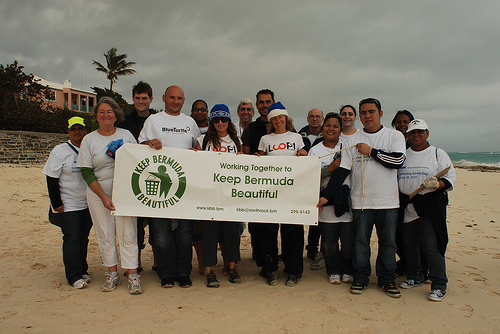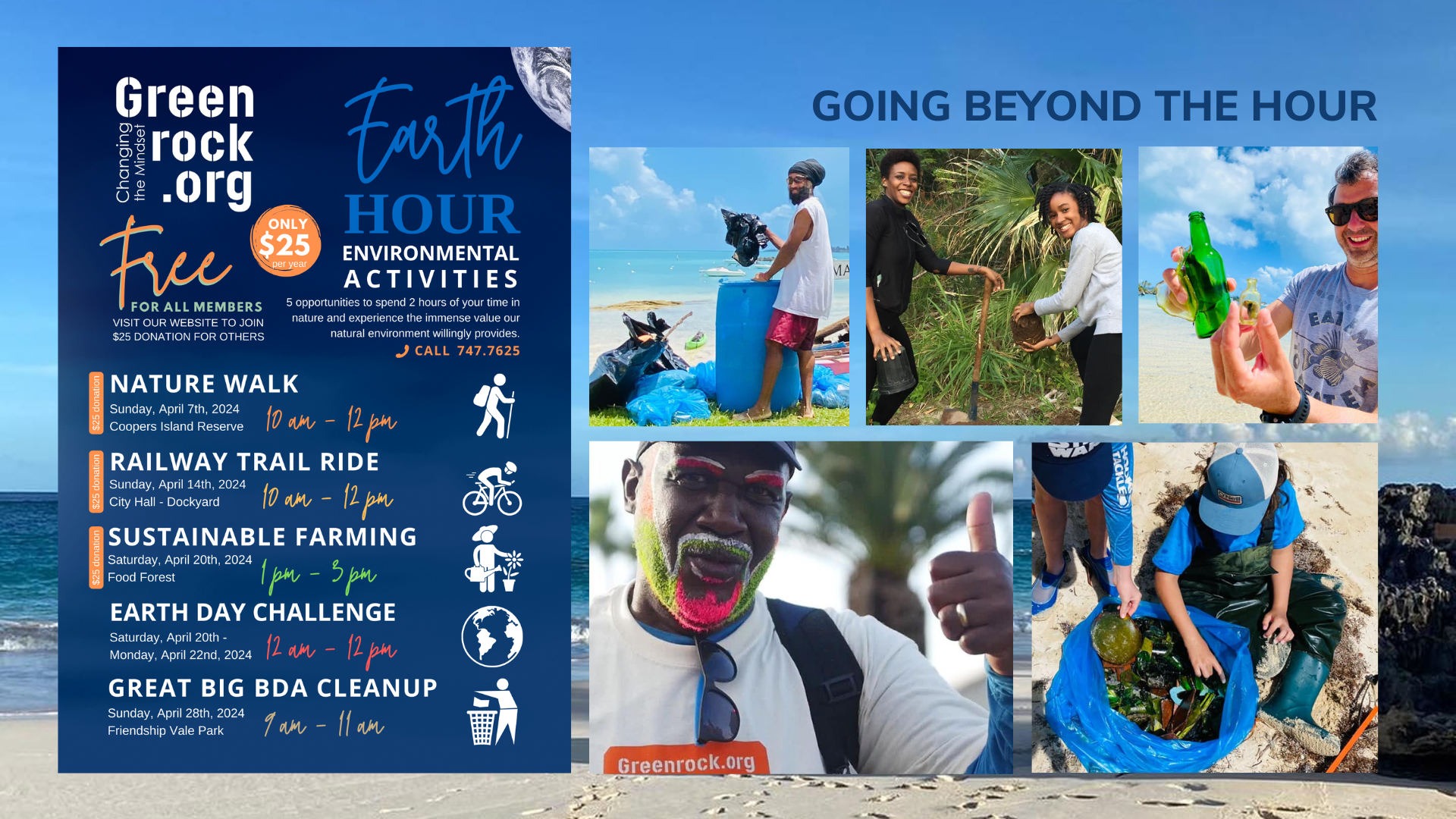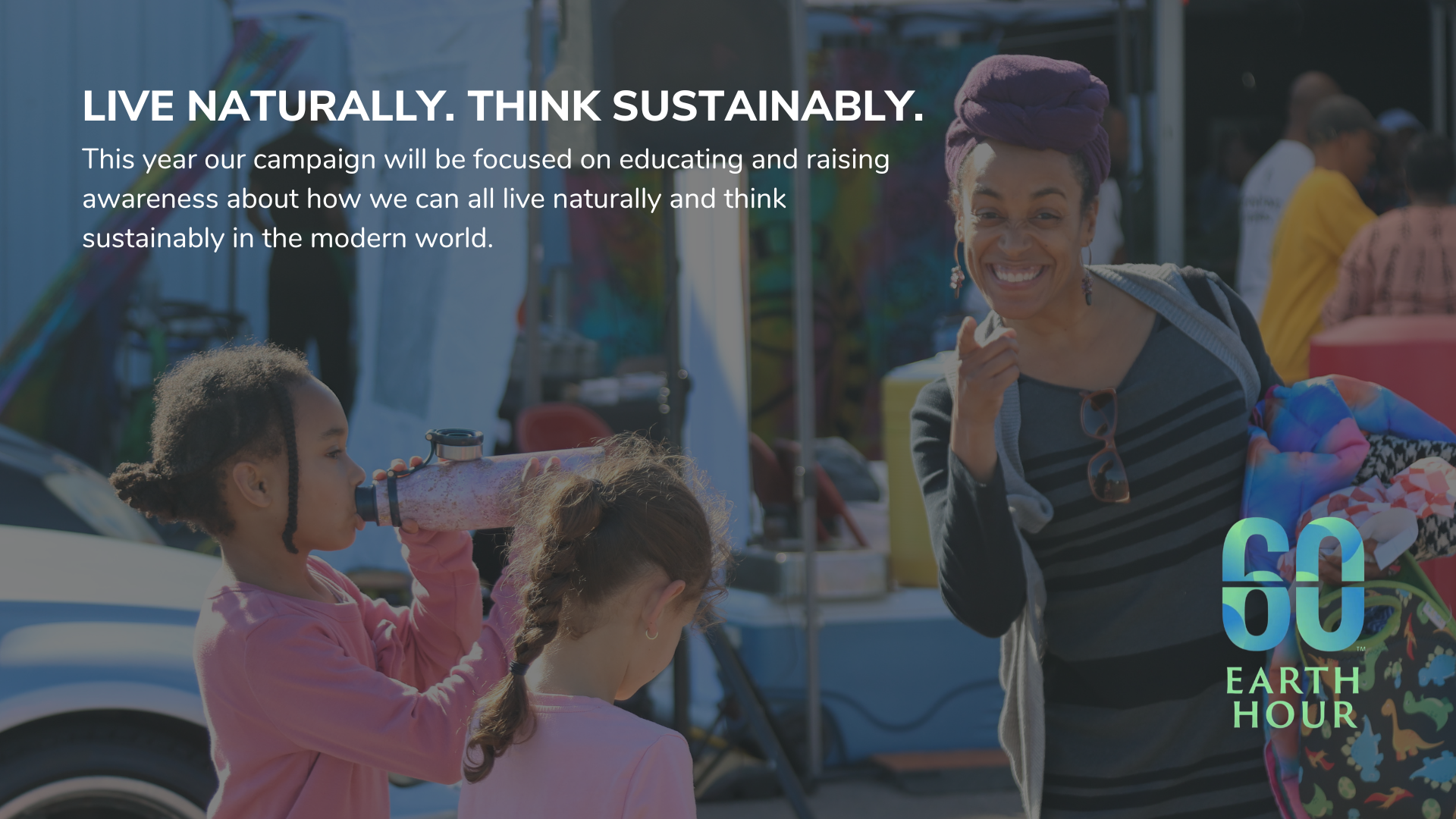The existence of an Atlantic “Garbage Patch” similar to one in the Pacific identified in the 1990s was confirmed earlier this year by two groups of scientists trawling the waters off Bermuda.
The floating garbage — extending over thousands of square miles but difficult to spot from the surface and spun together by a convergence of ocean currents — is harmful for fish, sea mammals and possibly even humans even though much of the plastic has broken into almost microscopic particles.
“We found the great Atlantic ‘Garbage Patch’,” said Anna Cummins of the environmental research group 5 Gyres, one of the teams working on the project.
Earlier she and fellow researchers involved in the gyre study came to Bermuda to conduct research and posted their findings — along with their positive impressions of the island — on a blog.
While here the American scientists teamed with Bermudian environmental organisation Greenrock and Keep Bermuda Beautiful to conduct beach clean-ups (pictured below) – gathering samples for their groundbreaking study in the process.
“Little or none of this trash originates in Bermuda –- rather this is trash from the mainland, carried some 700 miles by the Gulf Stream, and dumped on distant shores,” said Ms Cummins after the efforts to collect and remove rubbish from South Shore beaches. “Frequent beach cleanups by Keep Bermuda Beautiful serve as a temporary fix and a wonderful community effort, but more plastic simply washes up the next day. This serves as a sobering reminder that the problem starts on land – and on land is where solutions must begin.
“We can’t sieve, net, vacuum, or cleanup all the plastic on the world’s oceans and beaches, we must move further upstream to where the problem begins.”
Ms Cummins and her 5 Gyres colleagues then sailed from Bermuda to the Azores, crossing the Sargasso Sea — an area bounded by ocean currents including the Gulf Stream — taking samples every 100 miles. Each time they pulled up the trawl, it was full of plastic.
In August the news weekly “The Economist” reported the second scientific team working on the Atlantic gyre study — the Sea Education Association in Woods Hole, Massachusetts headed up by Dr. Kara Law — had not found the expected build-up of plastics in the area near Bermuda despite a massive increase in pollution along the US East Coast.
“The amount of plastic produced around the world increased fivefold between 1976 and 2008, and the amount thrown away by Americans went up fourfold between 1980 and 2008,” said the magazine. “It is a reasonable assumption that, as the amount of discarded plastic increases, so will the problem of oceanic pollution. Reasonable but, as it turns out, wrong.
“Dr. Law and her colleagues have no explanation for this lack of accumulation … the missing plastic (doesn’t) seem to have sunk. Trawls at depth show no sign of it. The Sargasso Sea of legend, and its modern equivalent, the Bermuda Triangle, are supposed to be places where things disappear without trace. Dr. Law seems to have come up with a real example.”
Click here for original article.





